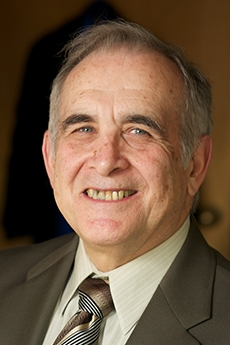Implicit in all heat engine and refrigeration technology, there is a requirement to drive the system through energizing a low-energy fluid. In compressors, this is achieved by rotating mechanical veins or impellers driven by motors, while in ejectors, it's achieved by turbulent entrainment, meaning the turbulence induces fluid motion. These mechanisms of flow induction inevitably cause energy loss, also known as energy dissipation, due to viscous interactions between fluid-solid interfaces and violent turbulent fluid-fluid interactions.
To circumvent these issues, GW Engineering professor of mechanical and aerospace engineering Charles Garris invented and patented a novel energy-efficient and environmentally beneficial pressure-exchange ejector. The Garris invention avoids the dissipation mechanisms inherent in the other technologies by utilizing momentum transfer through supersonic fluid-fluid interfaces produced by the pressure-exchange process. Countless applications for his invention exist in the technologies researchers are developing for a more sustainable environment, including efficient and compact refrigeration, fuel cell pressurization techniques, and novel compact turbochargers.
In 2012, the National Academy of Inventors (NAI) established its Fellows Program to highlight academic inventors who have demonstrated a prolific spirit of innovation in creating outstanding inventions that have made a tangible impact on quality of life, economic development, and the welfare of society, such as Garris. To honor the significant contributions to both science and society he has made through his inventions, Garris was elected to NAI’s 2023 Class of Fellows!
“Receiving the honor of becoming a Fellow in the National Academy of Inventors is a very warm and happy culmination of all the years I have devoted to inventions and patenting,” said Garris.
Garris has been actively creating inventions, such as the pressure-exchange ejector outlined above, throughout his entire career. He successfully coupled the process of developing his patented ideas with his research funded by the National Science Foundation, the Department of Energy, the Air Force Office of Scientific Research, and many more organizations. To share his expertise with the world, Garris has written papers on the use of patents in engineering education with the American Society of Engineering Education and NAI and served as an expert in numerous patent litigation cases.
“The patent system has been very important to me for many years as I have always been a devout believer in the thoughts of President Abraham Lincoln who once said, ‘The patent system added the fuel of interest to the fire of genius, in the discovery and production of new and useful things,’” Garris stated.
Garris said he believes all engineers should appreciate the patent system as well. At GW Engineering, he aims to cultivate this admiration in his students by encouraging them to participate in the school’s patent program that he initiated and by incorporating his ideas on patents into his teaching. As a Fellow, he joins fellow GW Engineering professors, Mona Zaghloul and Michael Keidar, in receiving the highest professional distinction offered by NAI.
All members of the 2023 class, which includes 2 Nobel Laureates, 3 National Inventor Hall of Fame inductees, and 22 members of the National Academies of Sciences, Engineering, & Medicine, will be presented with their medals at the NAI 13th Annual Meeting on June 18th, 2024, by a senior official of the United States Patent and Trademark Office. This honor recognizes how the impact of Garris’ inventions extends beyond the laboratory, embodying the spirit of President Abraham Lincoln’s belief in the power of the patent system.


